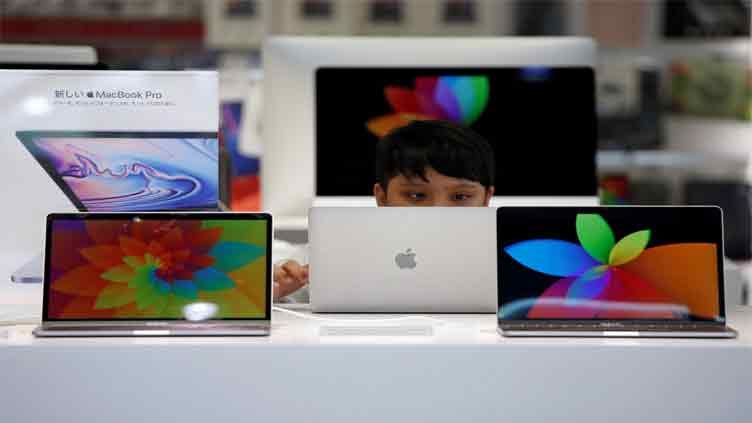India to delay import licencing of laptops

Technology
Plan to affect giants like Apple, Samsung, Dell and HP
NEW DELHI (Reuters) – India is likely to delay a plan to require licences for imported laptops, tablets and personal computers by a year, two government officials said, in a breather to companies such as Apple, Samsung and Lenovo.
The licensing regime, announced abruptly on Aug 3, aims to "ensure trusted hardware and systems" enter India, reduce dependence on imports, boost local manufacturing and in part address the country's trade imbalance with China.
After industry objections, the plan, which would also affect Dell and HP, was quickly delayed by about three months, and came under criticism from Washington.
Now, instead, the electronics ministry has proposed a simpler import registration process to begin in November, said the officials, who have direct knowledge of the discussions. The ministry conveyed the proposal to industry officials in a meeting on Friday, they said.
In early August, India had announced that it will impose a licensing requirement for imports of laptops, tablets and personal computers with immediate effect, a move that could force the likes of Apple, Dell and Samsung to boost local manufacturing.
Current regulations in India allow companies to import laptops freely, but the new rule mandates a special licence for these products similar to restrictions India imposed in 2020 for inbound TV shipments.
Industry executives had said a licensing regime would mean prolonged wait times for each new model they launch, and would come just ahead of a festive season in India when sales typically surge.
India's electronics imports, which include laptops, tablets and personal computers, stood at $19.7 billion in the April to June period, up 6.25 per cent year-on-year.
Research firm Counterpoint estimates India's laptop and personal computer market to be worth $8bn annually, with two-thirds of those imported.
"The move's spirit is to push manufacturing to India. It's not a nudge, it's a push," said Ali Akhtar Jafri, former director general at electronics industry body MAIT.
India has extended a deadline for companies to apply for a $2bn incentive scheme to attract investments in IT hardware manufacturing.
The scheme is key to India's ambitions to become a powerhouse in the global electronics supply chain, with the country targeting annual production worth $300bn by 2026.
SECURITY CONCERNS
Besides boosting local manufacturing, the government move is aimed at curbing supplies from China, as it has security concerns from such products, a second government source said.
The restriction will help India to import such hardware only from "trusted partners", the first government source added.
Half of India's restricted items are shipped from China, with whom Delhi's relationship has soured since border clashes in 2020, leading to several anti-China steps to curb investment and trade from India's neighbour.

